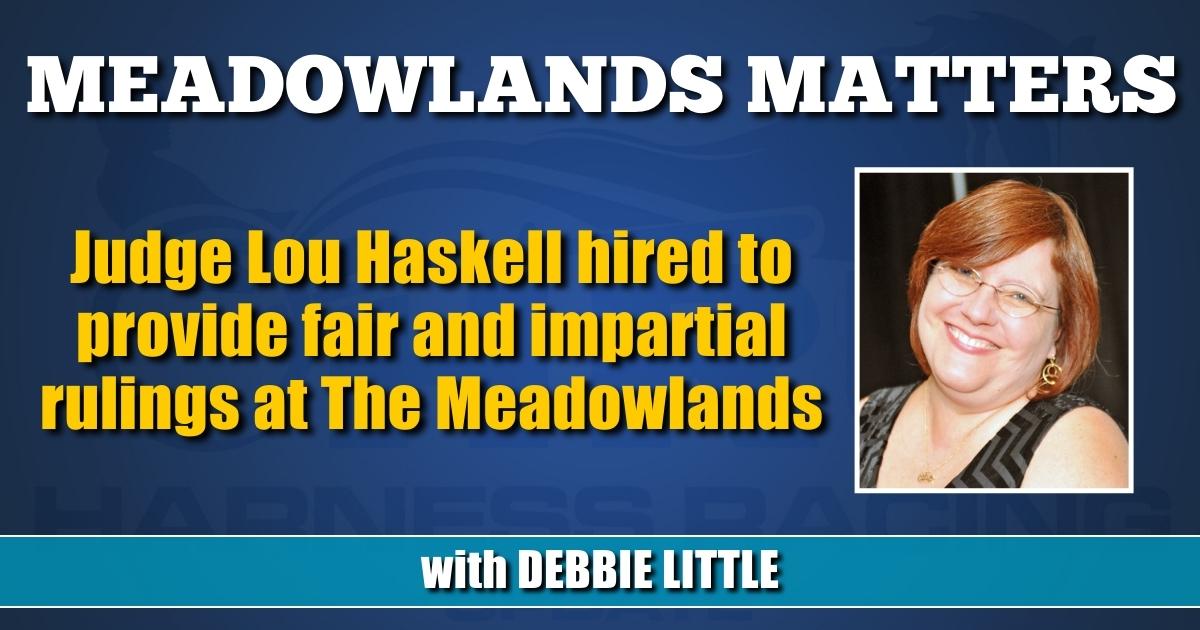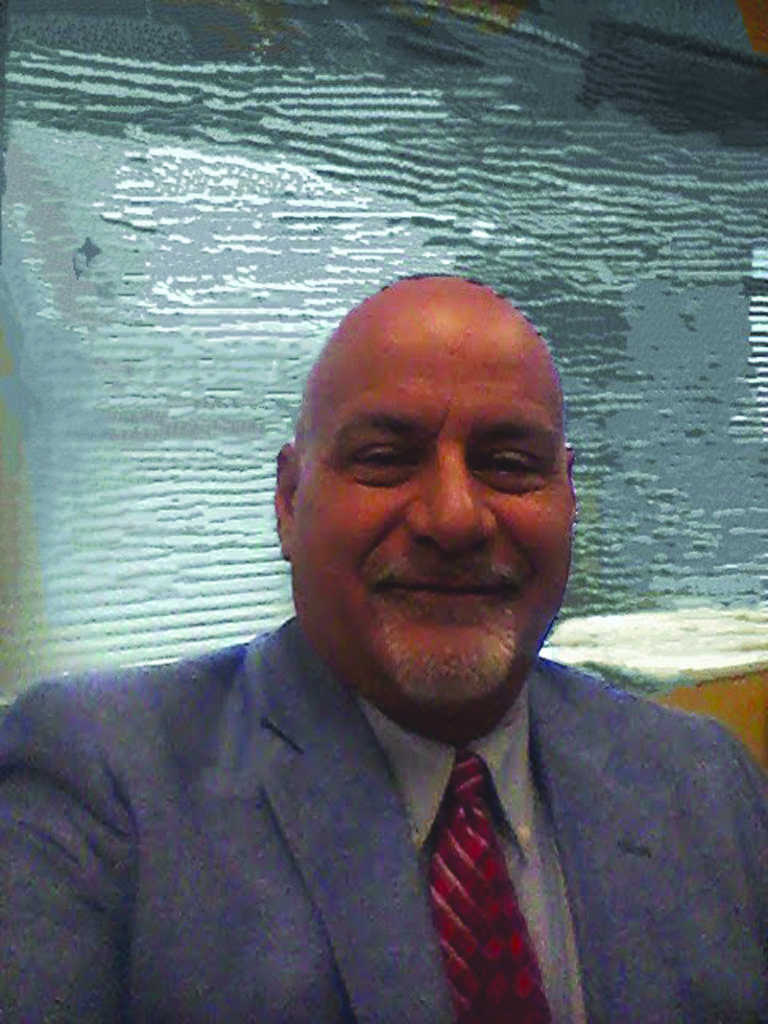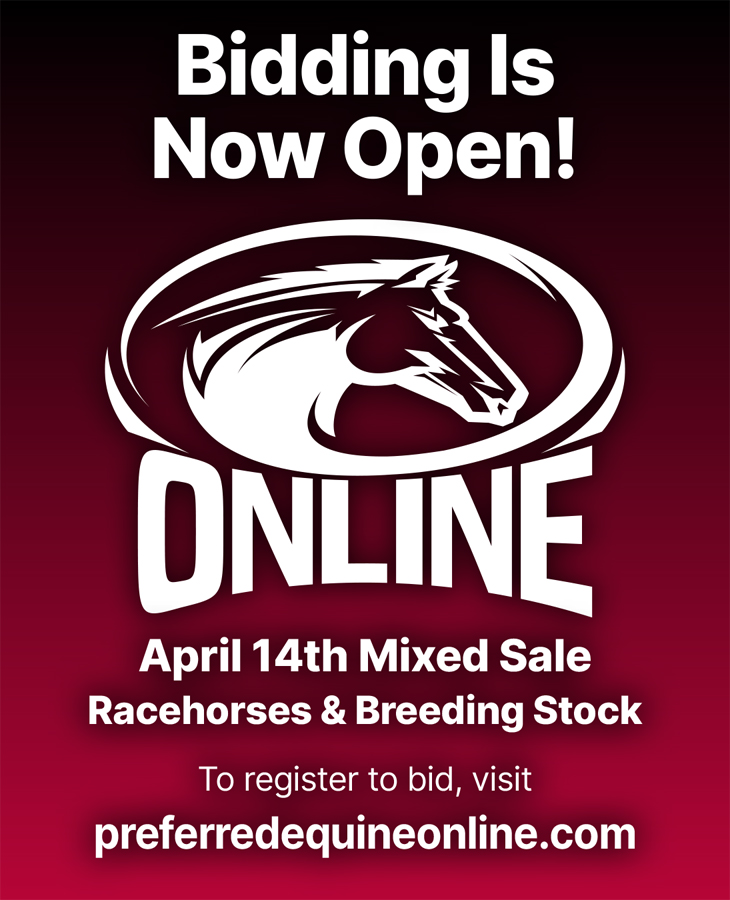The Enforcer
Judge Lou Haskell hired to provide fair and impartial rulings at The Meadowlands.
by Debbie Little
Judge Lou Haskell will start his new job on Friday, March 31, enforcing specific rules that track president/chief executive officer Jeff Gural think are vital to the continued success of The Meadowlands.
Gural believes their work towards eliminating what are commonly known as “courtesy tucks” — among other things — has helped to improve their bottom line.
“We are very pleased by the efforts most of the drivers are making to close the holes and the feedback from customers has been positive and we believe [it] is reflected by our increase in handle,” Gural said. “We believe hiring Lou will help us to continue to improve the product.”
For Haskell’s part, he looks forward to working with the horsepeople at The Meadowlands, many of which he has worked with before in his many years as a judge.
“I wouldn’t have taken the job if I didn’t believe in what they were doing,” Haskell said. “I work for the track. I work for Jeff Gural and there are very specific things that I’m looking at. What I’m doing does not overlap what the [New Jersey Racing] Commission is doing.
“Jeff has things that he doesn’t like that are going on, on the racetrack and he’d like to see it done differently. He’s the boss. He doesn’t want it to happen and we’re going to stop it.”
As a native of Saratoga Springs, NY, Haskell, 65, grew up at the racetrack and has been around harness racing since he could walk.
“My dad and my uncle owned standardbreds, so I literally spent every weekend on the backstretch at either Saratoga Harness or Vernon Downs,” Haskell said. “I was just always passionate about it. I would get that knot in my stomach going through the stable gate. And it was that way my entire life.”
As a young boy, it was Haskell’s plan to work in harness racing, but his parents aimed him towards a more stable profession, so instead he graduated from the State University of New York (SUNY) Plattsburgh with a degree in marketing.
“And I went out into the business world and I was miserable,” Haskell said. “Just miserable. And then by the time I was 30 years old, I started owning racehorses.”
At the age of 50, Haskell was diagnosed with cancer for the first time and the prognosis wasn’t good.
“It was Hodgkin’s lymphoma and it wasn’t supposed to have a good outcome, but it did,” Haskell said. “And I decided right then and there, enough. I need to do something that I really want to do. You only have one go at this, do what you love.
“I went to the USTA [U.S. Trotting Association] school in Columbus. Took the judge’s course. Passed. And the rest is history. And I’ve been a racing official ever since. It was the greatest thing I ever did. I love the game. I love being a judge. I’m passionate about it. It’s just something I really enjoy.”
In addition to being USTA licensed, Haskell is also ROAP (Racing Officials Accreditation Program) certified at their top level.
“My accreditation is in standardbred racing and that’s what 98 per cent of my experience is,” Haskell said. “Level one is the highest level you can be. And, of course, it’s based on experience.”
Haskell has worked at several tracks over the years, most recently spending three years at Plainridge Racecourse. His time there was cut short, however, when he received a third cancer diagnosis. He has now battled three different types of cancer and come out on the winning end every time.
He believes he will be the first virtual racing official in the country since his job will not require him to be on site at The Meadowlands.
“The beautiful thing about what I’m going to be doing and working from home [in Florida] is that I have numerous different ways to watch the races,” Haskell said. “Numerous different platforms. So, if I need to look at it again and again and again, I can certainly do that. I’m not restricted by the next race coming right up. So, it’s a win-win I think.”
The four rules that Haskell will be focused on, broken down to their most basic points, are:
1 — Courtesy Tucks
2 — Half in, Half out
3 — Coming off the rail just out of the far turn to let horses go up the inside
4 — Drivers leaning too far back in the bike down the backstretch
In races involving 2-year-olds there will be more latitude used when enforcing the “courtesy tuck” rule, however unlike in previous years, the rules will be enforced in stakes races.
The penalties have also gotten stricter.
“The first punishment will be a warning and then the second punishment will be the next weekend off,” Haskell said. “And then we’ll see how it goes. The third part is you’re out, so they’re serious about this.
“It’s going to happen. It’s going to be enforced and those who are averse to it or who don’t want to play by the rules are just going to have to suffer the consequences. I don’t really know what else to say.”
With all that said, Haskell does understand that every race is different, just as every horse’s ability is not the same.
“If a horse can’t keep up and a horse gets in in front of him so be it,” Haskell said. “It’s not about trying to punish anybody. That’s not my goal at all. And that’s not their goal. It’s about evening up the playing field a little bit.
“[Gural] wants the horses coming from behind and the outside horses to have a better chance at coming up from off the pace. I’m pretty sure that’s part of the thought process in all of this. And I think he’ll get that.”
Hall of Famer Wally Hennessey knows Haskell from Pompano Park. And although they didn’t always see eye-to-eye on everything, Hennessey said he has nothing but the utmost respect for Haskell and the job he did.
“I think they made a terrific hire at The Meadowlands,” Hennessey said. “I don’t know where you’d search to find one better. I think Jason [Settlemoir] and Jeff could have searched the world over and not found a better hire.”
Hennessey appreciated the way Haskell dealt with everyone because you always knew where you stood.
“When you have inconsistencies that’s when you run into problems,” Hennessey said. “Why me and not him? But that’s not going to be brought up because it’s going to be everybody.
“I think you’re going to see it’s going to be alright because the guys at The Meadowlands have got to know and they will know that they’re not dealing with a rookie here. He’s somebody who has been there and done that. It’s not like you’re listening to him and you’re saying ‘Well, what would he know?’ Well, he does know.”
For Haskell, fairness and consistency is everything when it comes to enforcing rules.
“They have to be upheld without prejudice for the guy who has one horse or one drive or the guy that drives 5,000 horses or the guy that wins eight races a year or the guy that wins 800 races a year,” Haskell said. “They know who I am, I know who they are. I’m not out to hurt them. I’m not out to hurt anybody. Everybody will be treated exactly the same, regardless of your name, experience or trophies. Everybody has to be treated equally. It’s so very important.”

















